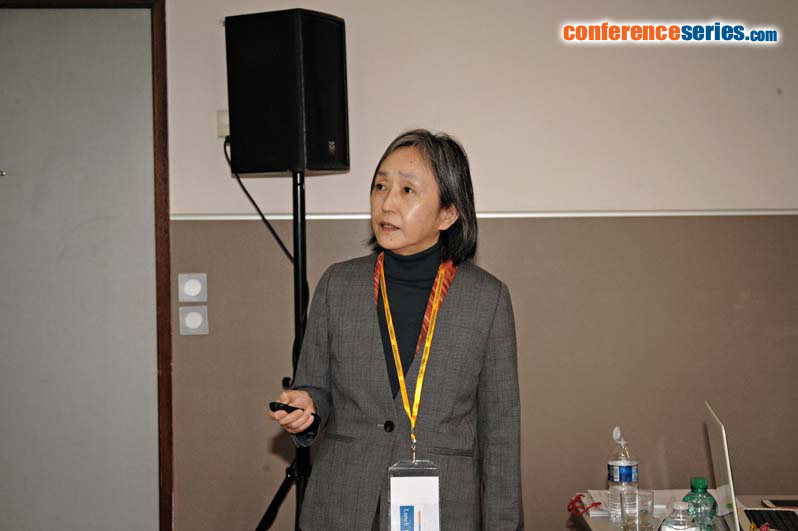
Masae Takahashi
Tohoku University, Japan
Title: Theoretical design of flat building blocks for flat silicene with density functional theory calculations
Biography
Biography: Masae Takahashi
Abstract
Silicene is the silicon equivalent of graphene, which is composed of a honeycomb carbon structure with one atom thickness and has attractive characteristics of a perfect two-dimensional -conjugated sheet. However, unlike flat and highly stable graphene, silicene is relatively sticky and thus unstable due to its puckered or crinkled structure. Flatness is important for stability, and to obtain perfect-conjugation, electron-donating atoms and molecules should not interact with the electrons. The structural differences between silicene and graphene result from the differences in their building blocks, flat benzene and chair-form hexasilabenzene. It is crucial to design flat building blocks for silicene with no interactions between the electron donor and orbitals. Here, we report the successful design of such building blocks with the aid of density functional theory calculations. Our fundamental concept is to attach substituents that have sp-hybrid orbitals and act as electron donors in a manner that it does not interact with the orbitals. The honeycomb silicon molecule with BeH at the edge designed according to our concept clearly shows the same structural, charge distribution and molecular orbital characteristics as the corresponding carbon-based molecule. The minimum structure of all the obtained silicon polycyclic molecules is flat. The charge is nearly neutral inside the ring and strongly negative at the ring edge due to the terminal BeH substituent. The HOMO and LUMO are -orbitals. The designed molecules could act as building blocks for flat silicene, which is a conjugated 2D sheet composed of six-membered silicon rings. Flat six-membered silicon rings have long been desired in silicon chemistry and 2D silicon materials. In this study, flat hexasilabenzene was realized and it was confirmed that the extended ring molecules are also flat. The flatness of these building blocks opens the way to flat silicene ribbons or films constructed by them.


